ZELDA DUNGEON’S BEST ZELDA EVER 2022 EDITION LIST
Posted on November 30 2022 by Andy Spiteri

Another spin around the sun has come and went, and with it, the latest installment of Zelda Dungeon’s proudest yearly tradition: Best. Zelda. Ever!
2022 marked the first year in quite some time where we had no real Zelda activity. No new games were released, no new projects were announced, it was… quiet. Although we got a title for the long-awaited sequel to Breath of the Wild, 2022 seemed like a year that could best be described as the calm before the storm, as we know next year Tears of the Kingdom is coming in to disrupt this list big time. For now, we wait and let the existing roster of Zelda games solidify their place among the Zelda Dungeon staff. As always, new writers join the ranks, old writers move on, and the list evolves and changes over time.
The rules and premise from last year carry over: all the games from last year’s list will be returning to be ranked by our editors, and the point system stays the same. Games are ranked on a writer’s own personal experience, and we decided to factor in any games that got the remake treatment (Ocarina of Time 3D, Skyward Sword HD, Link’s Awakening Switch, etc.). The point totaling system stays the same: it’s designed to reward editors that had played more Zelda games. For example, instead of a writer’s favorite Zelda game automatically being awarded 22 points (for 22 games), we started with the least favorite game getting 1 point and worked up. That way, an editor who had only played 10 Zelda games would only be awarding their favorite Zelda game 10 points.
Although I say it every year, it really does bear repeating: putting together a list like this is no easy feat. Everyone has their favorite Zelda games, of course; but when tasked with ranking the whole series, how do certain factors play in? Are we ranking the games based on how they hold up today, or are we putting the context of the time of release into our considerations? What about the games that aren’t as readily available to play, and thus, haven’t been fresh on the mind in some time? How do we take into account spinoff games and different genres of Zelda games compared to the core series? These are all questions that each writer considers, and ultimately, we left it up to our writers to come to their own conclusions about what it means to be a great Zelda game.
Below, you’ll find the thoughts, opinions, critiques, and insights of our incredibly talented writing staff. We’re very proud to once again deliver Best Zelda Ever to everyone! Let’s get down to it!
Best Zelda Ever 2017 | Best Zelda Ever 2018 | Best Zelda Ever 2019 | Best Zelda Ever 2020 | Best Zelda Ever 2021
22. Tri Force Heroes
Highest Rank: 15 | Lowest Rank: 22 | Last Year’s Rank: 21 | Avg Points per Author Played: 3.23
7/20 Editors had not completed the game and did not rank it
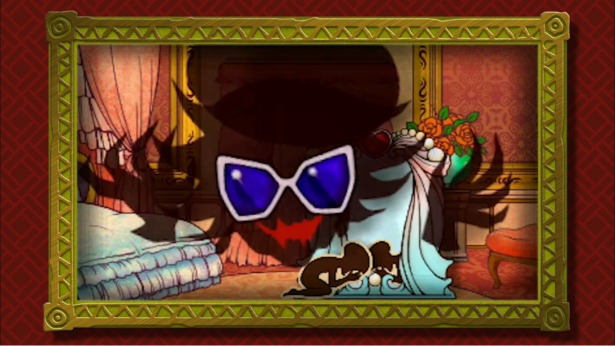
Tri Force Heroes finds itself occupying a familiar place: dead last.
“Oii… I promised myself I’d be more positive about this game this year, I really did,” mutters Andy Spiteri, resident Tri Force Heroes naysayer. “So in the spirit of that promise, I will offer this: in the exact right set of circumstances, this game can be enjoyable. Sort of. But I feel like, given the pedigree of the series, you shouldn’t have to check off a bunch of boxes, stuff like, ‘have to be playing multiplayer,’ ‘have to be playing in person,’ ‘have to be one of the levels that has a good boss.’ You shouldn’t have to check all those boxes to have a fun time playing a Legend of Zelda game.”
Alex Weber tries to see the bright side. “One of the greatest assets of Zelda games are the ways they permeate joy and happiness. While not the standard single-player experience that Zelda games normally offer, Tri Force Heroes takes into account the lighthearted value of the chaos in three friends congregated on a couch in the spirit of cooperation. Tri Force Heroes is a game full of laughter and a shared heroism that unites even strangers, a phenomenon I saw many times over at the marathon this past year. While of course not as strong as other Zelda games, the creative puzzles and silly circumstances forge friendships in a fun and special way.”
“I’ll be honest with you — in a lot of ways, this game offends me for what it did to lessen the Legend of Zelda brand,” finishes Andy. “You could set your watch to the very worst Zelda game still being a fun, competent adventure that would still be better than most other games out there.
“You just can’t say that about Tri Force Heroes. And for that, it deserves last place.”
21. Four Swords
Highest Rank: 15 | Lowest Rank: 22 | Last Year’s Rank: 22 | Avg Points per Author Played: 4.45
9/20 Editors had not completed the game and did not rank it
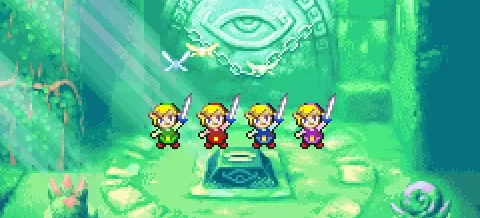
In so many ways, Four Swords never really had a chance. As with years previous, the lack of accessibility is the downfall of Four Swords.
“I vividly remember as a child wanting to get Four Swords when it was released, not knowing about the hoops required to even play it,” recalls Charles Xavier. “To me, it just looked like a new Zelda game that had a port of A Link to the Past – pretty cool stuff! Looking back, I’m so glad I didn’t get it because I probably never would have been able to play it. Four Swords has always suffered from a lack of accessibility. The Game Boy Advance version, being an exclusively multiplayer game, requires at minimum two Game Boy Advance systems with copies of Four Swords, and a link cable. Modernly, the only way to play this game easily is if you were lucky enough to download the Four Swords Anniversary Edition as DSiWare or on the 3DS eShop before it got pulled.”
“Four Swords‘ reputation amongst Zelda fans has been handicapped since release due to its nature as a largely cooperative experience in an otherwise single-player series, its extreme de-emphasis on story, and its perceived status as a side game (despite being recognized as a main series title by Nintendo),” continues Rod Lloyd. “But that reputation has taken an even harder hit in recent years due to the game’s relative unavailability on any current major platform, as the Game Boy Advance version of A Link to the Past is hard to come by these days and the DS-based Anniversary Edition is no longer available to download.”
Accessibility aside, Four Swords doesn’t do enough to elevate it above other multiplayer games in the series.
“It’s not a terrible game, but it definitely is lacking in many aspects,” finishes Charles. “The world is pretty uninteresting, the gameplay feels extremely repetitive; the worst part is it lacks any meaningful story at all. Countering those negatives, I’ll say the Anniversary Edition‘s best aspects are that it can be played solo, the addition of the Realm of Memories, and the introduction of Vaati to the series.”
Rod agreed. “To those who have played it, Four Swords can be considered a proficient, if undercooked, experiment that paved the way for the far superior Four Swords Adventures. Special mention should go to the Anniversary Edition‘s inclusion of a single-player option and its surprisingly clever ‘Realm of Memories’ mode.”
For now, it’s hard to envision a path for Four Swords to climb higher on our list.
20. The Adventure of Link
Highest Rank: 10 | Lowest Rank: 22 | Last Year’s Rank: 20 | Avg Points per Author Played: 4.44
4/20 Editors had not completed the game and did not rank it
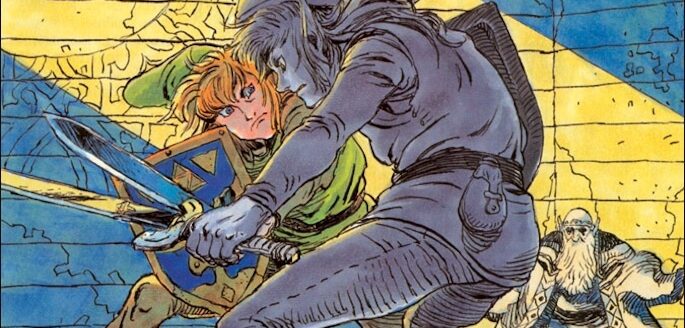
Old. Curmudgeonly. Abstruse. Misunderstood.
All of these things could adequately describe The Adventure of Link, which once again finds itself towards the bottom of our list, with numerous last place finishes. Once again, however, it has its defenders who seem to take it personally when the game is dismissed.
“The Adventure of Link is a bit of a conundrum for me. I’m not a huge fan of it, but that’s mostly because I’m just not very good at it,” writes John Piland. “I think this game is truly something special, though. It tried something new, and it’s a Zelda experience unlike anything else in the franchise, from its platforming, JRPG-like overworld navigation, and stat system, not to mention its amazing music that stands apart as something legendary.”
Andrew Millard has a different, more unorthodox, appreciation for Zelda II. “The Adventure of Link, in a way, was my introduction to why streaming is so incredibly popular. It was the first game (along with Castlevania) that I couldn’t grasp. I was hopelessly lost and in a constant deathloop, even against basic, random encounters. At age 10, though, just being around video games was enough to get hyped. So, more often than not, if Zelda II was in my or a friend’s NES, I was happy to just watch someone else cross once more into the breach. Fast forward to my high school replays of older Zelda games after plowing through Ocarina of Time, and any nostalgia I had for it was ruined. Too opaque. Too difficult. Too many choke points. All the usual knocks.”
“What can I say about The Adventure of Link that hasn’t been said before? It’s difficult, yes. It’s old, sure. But I think the best way to classify Zelda II is simply: misunderstood,” offers David Wayne Nystrom. “My experience with the game taught me patience, or at least put it to the test. Without a guide, my journey through the massively expanded Hyrule would have never gotten further than perhaps the Swamp Palace. That said, the game’s offerings are far deeper than its reputation abides. Many of the conventions that Zelda has thrived on in the more than 30 years since the game’s release in 1987, came out of this game. Magic meters, town names reused as sages, and even the idea of Ganon returning by some means found its origin here. Let’s not forget the third piece of the Triforce and it appearing on the back of Link’s hand, a staple even through modern times.
“To me, Zelda II is a brute of a game. It is tough to love and even tougher to play. My appreciation for the game, though, is second to none. Without it, Zelda as we know it today would likely not be what it is. My own adventures in this version have always left me exhausted, frustrated, and wondering, ‘What if.’ However, I will gladly defend its merit as a good game, influential on an even greater series, and deserving of placement on the list.”
19. Hyrule Warriors
Highest Rank: 3 | Lowest Rank: 22 | Last Year’s Rank: 19 | Avg Points per Author Played: 5.86
6/20 Editors had not completed the game and did not rank it
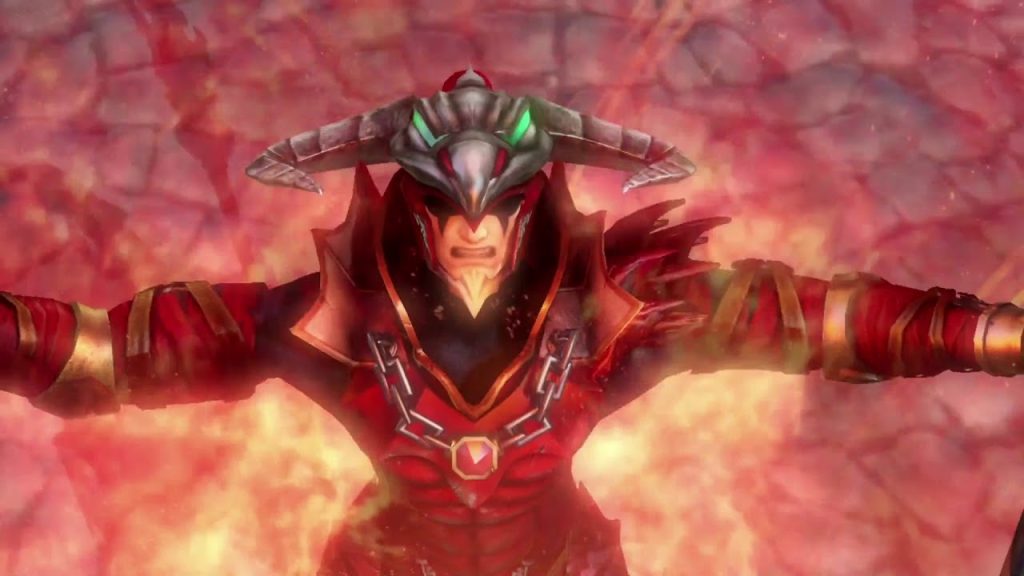
Hyrule Warriors remains stagnant on our list this year, neither rising or falling. It’s status as a spinoff, both as a story and in terms of gameplay, will unfortunately probably condemn it to the lower echelons of our yearly list.
“Hack-n-slash games really aren’t my style, and that’s why Hyrule Warriors is my least favorite Zelda game,” states Charles Xavier. “I didn’t know that I would dislike Musou gameplay when I bought Hyrule Warriors: Legends on 3DS. I played it for as long as I could, but the gameplay got so boring to me that I didn’t finish the game. It also didn’t help that I feel like it was a terrible idea to port a game like this to the 3DS of all consoles. I always felt anxiety that I would screw up the 3DS analog stick while in the heat of the moment. It’s hard to focus purely on such an intense game like this when there are always intrusive thoughts about breaking the console.”
Even so, there is a certain addictive quality about these games that make them dear to some members of the team.
“Hyrule Warriors is among peak Zelda experiences for me,” claims John Piland. “Immensely fun and filled with diverse modes of combat, Hyrule Warriors in all its iterations is a love letter to the franchise. Through aesthetic, map, combat, challenges, and music, each level of the story offers different stakes and rewards, so that it never gets old. Where this game really takes the cake, though, is in its voluminous amount of post-game material across countless modes, with countless rewards that keep you playing for more. Some levels are easy, and some are a down-right pain, but this ensures the experience never gets dull. Choosing different characters, weapons classes, fairies, and more make this game an epitome of immersion. Even outside of missions, navigating each mode’s map is a blast, not to mention an amazing nostalgia trip.”
“The Hyrule Warriors spin-offs are honestly some of my all-time favorites. While it’s true that Nintendo has had quite a bit of variation between the core titles of the franchise, the company has never greatly varied the essential gameplay. To me, though, the highlight of Hyrule Warriors Definitive Edition is the story itself,” says David Lasby, a noted Alien fan. “Having grown up playing each Zelda title as it was released, I’d always wondered how the various Links were connected; I loved to play the ‘What if’ game in my mind. The fact that Nintendo eventually admitted the first Hyrule Warriors wasn’t canon didn’t change my enjoyment of the story, a narrative which seemed to solve the timeline dilemma once and for all.
“The notion of bringing together all the various heroes from across the Zelda multiverse was a fantastic choice.”
18. Cadence of Hyrule
Highest Rank: 7 | Lowest Rank: 22 | Last Year’s Rank: 16 | Avg Points per Author Played: 5.67
5/20 Editors had not completed the game and did not rank it
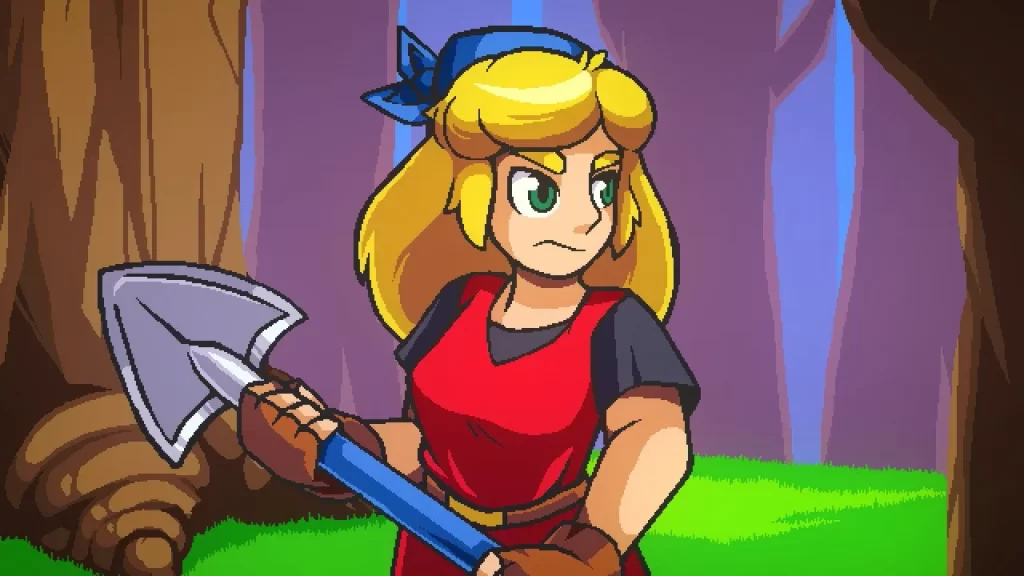
Cadence of Hyule, the rhythmic spinoff game developed by Canadian Brace Yourself Games, takes a tumble down our list this year, falling two spots to 18th. For all the same reasons we said Hyrule Warriors might be cursed to stay at the bottom of our list, Cadence of Hyrule might have a tough road ahead if it wants to climb higher. One thing is has going for it is that those who have played it generally have great things to say.
“I got Cadence of Hyrule on a whim and nearly completed the whole game in just the first couple of sittings. The rest of the time spent finishing the game was just a matter of taking extended breaks from a style of gameplay I’m simply not used to,” recalls Kora Burton. “This Crypt of the NecroDancer crossover is definitely not a traditional Zelda experience, but the rhythm-based gameplay is addictive, and once you hit your stride, it feels like you can conquer the world. For those of us hopelessly dreaming of a playable Zelda in the upcoming 2023 title Tears of the Kingdom, being able to play as the princess herself for the majority of Cadence of Hyrule like I did was a wish-fulfilling breath of fresh air.”
Heather Beard had similarly nice things to say. “Music in a Zelda game has always been a memorable thing for me, as it is for others. I think that’s why I enjoy Cadence of Hyrule so much. The new spin on classic Zelda songs made for a fun experience with this indy title. Cadence of Hyrule is a quick game to jive through, but can be a little difficult if you’ve never played a rhythm game before. It’s a game that I find little fault with, but at times the game can feel repetitive. I think the game makes up for that with some fun boss fights, and unique challenges on different map squares. It’s not your traditional Zelda game, but the developers did an awesome job of pulling together all of the things that make a Zelda game fun.”
While it will never be a game for every Zelda fan, Alex Weber extols the virtues of this rhythm game and what it means to her.
“While I’ll acknowledge that the gameplay of Cadence of Hyrule isn’t for everyone, as the beat-based movement doesn’t click as smoothly with some, I tend to absolutely love it. As a dancer and a musician, I have always been fond of music and the way it drives me, which is why moving to the music in Cadence of Hyrule feels natural. I believe that the game is a perfect meld of elements in the Zelda series and the past conventions of Crypt of the NecroDancer, creating a surprisingly beautiful fusion of gaming experiences. The randomized maps make for unique playthroughs filled with Zelda series details that would make any fan smile. And, as far as the music itself, I really could listen to it all day, and probably have in the past. The charming yet challenging rhythm-based game is definitely a must-try for any Zelda fan.
“Although you might need an extra thirty minutes and a bit of patience to spare for the Gleeokenspiel fight, I promise the sense of victory afterwards is well worth it.”
17. Phantom Hourglass
Highest Rank: 9 | Lowest Rank: 21 | Last Year’s Rank: 15 | Avg Points per Author Played: 5.5
4/20 Editors had not completed the game and did not rank it
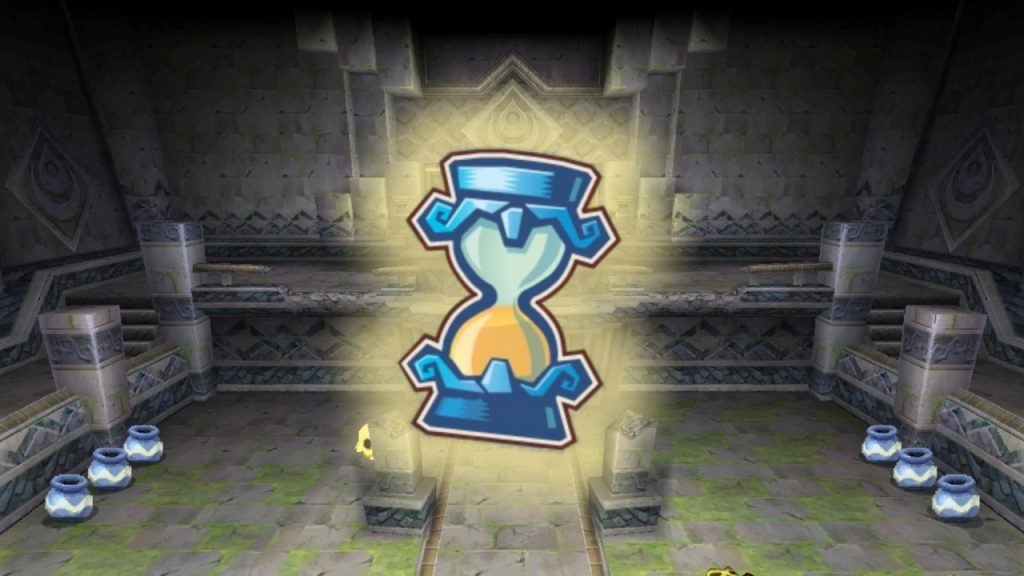
The first of the classic Nintendo DS adventures finds itself in 17th place this year. Phantom Hourglass certainly has its hardcore fans, but the stylus-based controls and dubious dungeon design certainly divide the Zelda community, with many hoping the story will be given new life with a remake one day.
“I had been waiting desperately for a sequel to The Wind Waker,” writes Sid Puri. “I loved the aspect of traversing the ocean and exploring new islands. When I learned that Phantom Hourglass was released, I immediately picked up a copy and quite quickly became confused with what I was playing.”
Explaining frustrations with the game, Sid remembers, “While I enjoyed how the Nintendo DS attempted to incorporate unique control and gameplay mechanisms, the game itself had many setbacks. The wonder and joy from The Wind Waker was lost upon repetitive visits to Temple of the Ocean King and quite stagnant dungeons. The entire game would require a complete revamp for it to find its way back to a main Nintendo console. In hindsight, it seems like a mobile Zelda game if it were to be re-released today.”
Others have a more positive view of the game. “By focusing on a world that is not Hyrule, Phantom Hourglass had the freedom to explore new characters, islands, and gameplay ideas,” says Sean Gadus. “Bellum and Linebeck are great additions to the series, and these exciting new characters help differentiate the game from other Zelda adventures.
“On another positive note, the game was the first to feature a true dual-screen set-up, which proved to be one of the major advantages that Nintendo DS and 3DS Zelda games had over their console counterparts.” However, Sean does note that “despite these refreshing qualities, the game is hindered by the sluggish Temple of the Ocean King, a central dungeon that requires repeat visits. Additionally, in retrospect, the touch-based control scheme for the DS Zelda games feels incredibly short-sighted, and I worry that Phantom Hourglass will be marooned on its original hardware for years to come, with no hope for a port or remake.”
Rod Lloyd is a firm believer that “Phantom Hourglass has a lot going for it. The game boasts a charming art style (adopted from The Wind Waker), a rollicking story with the salty sailor Linebeck as its backbone, and surprisingly smart puzzles that make the most of the Nintendo DS’ eccentricities within the tried-and-true top-down Zelda formula.”
However, despite those positives, the negatives already mentioned will perhaps always drag Phantom Hourglass‘ reputation down. As Rod sums up, “The Legend of Zelda will always have a cozy home on handheld platforms, but the series’ two DS outings—of which Phantom Hourglass is the weaker—without a doubt represent the low point of Zelda‘s portable pursuits.”
16. Four Swords Adventures
Highest Rank: 5 | Lowest Rank: 22 | Last Year’s Rank: 17 | Avg Points per Author Played: 7.30
7/20 Editors had not completed the game and did not rank it
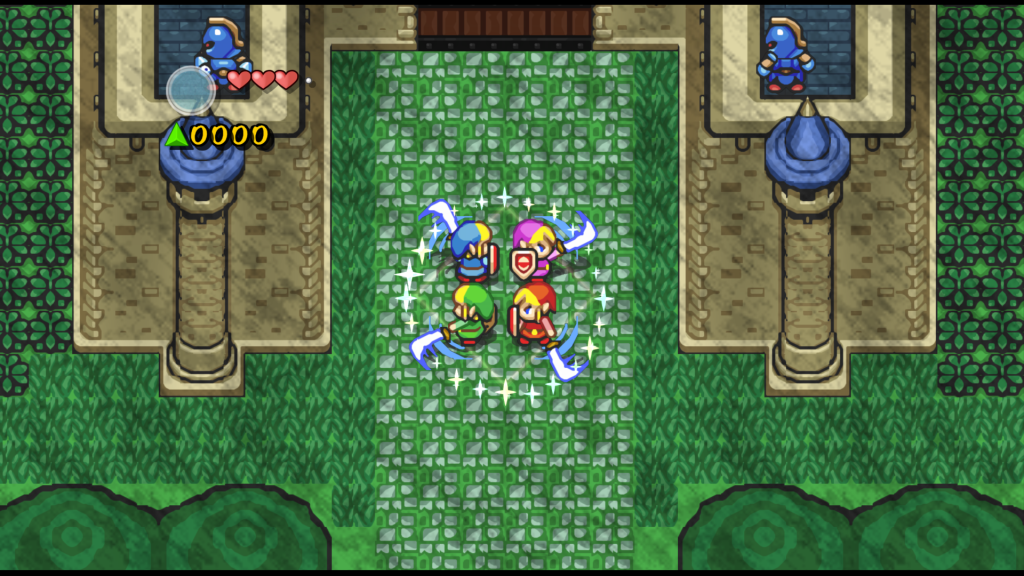
Yet another year goes by, and yet it’s the same old song and dance for Four Swords Adventures — those who have played it tend to love it, as evidenced by its high points-per-author-played stat, but the act of actually playing it remains the single biggest barrier to this multiplayer-focused Zelda game climbing higher up our list.
“Two things can be true at the same time,” philosophizes Andy Spiteri. “One: that Four Swords Adventures is an absolute top-tier Zelda game that’s fun to play with friends in a cooperative spirit — even more fun to play with friends if you want to be a you-know-what disturber — and an incredibly fun and rewarding single-player experience to boot. No one can ever tell me that Four Swords Adventures is a bad Zelda game. It’s just the the second truth is the more defining truth: actually getting what you need to experience Four Swords Adventures to the fullest is an absolute schmauze.
“Between the link cables, the multiple Game Boy Advances, and a Game Boy Player if you really want to play in style, that can all add up. Heck, even getting Four Swords Adventures to play solo is a tall task since it’s marooned on the GameCube, and finding a physical copy is harder than finding 900 Korok Seeds. I will scream and shout until the day I die that the effort is worth it and that this game is a fun and worthwhile Zelda experience, but I can’t fault anyone for not wanting to jump through a million hoops to play this title.”
Alexis Anderson, long a champion of this multiplayer adventure, agrees. “Four Swords Adventures is exceedingly charming and criminally underrated. The gameplay is similar to that of A Link to the Past and Link’s Awakening with the added (fantastic) four-Links mechanic. Not only can it be joyously played with others, but seamlessly played solo (unlike Tri Force Heroes). The game has a decent story, adorable maidens to rescue, wistful ghosts to encounter, some memorable NPCs, A FORCE GEM OBSESSED TINGLE, and the return of Vaati! What’s not to love? There are even additional multiplayer games outside of the main game that my brother and I used to get real competitive playing. And let’s not forget, each Link’s voice is a different pitch (Purple Link’s is super deep, it’s very funny).”
Still though, it all comes back to the point of accessibility, which Alexis concedes hurts the games reputation.
“Four Swords Adventures is hard to access these days, but that shouldn’t lead people to assume it’s worth missing. From my perspective, it’s a real loss that Nintendo hasn’t re-released this title.”
15. Spirit Tracks
Highest Rank: 5 | Lowest Rank: 21 | Last Year’s Rank: 18 | Avg Points per Author Played: 6.24
3/20 Editors had not completed the game and did not rank it

The Nintendo DS games have rightly received their share of criticism. The controls were unwieldy, the graphics were cringe-worthy, and aging has not been kind. Yet these two Zelda diamonds in the rough have their fans. Spirit Tracks is viewed by some to have improved upon the formula put forth by Phantom Hourglass, seen as perhaps the best of the DS games.
No one on our staff is a bigger Spirit Tracks fan than Kat Vadam, who thinks the game doesn’t get the recognition it deserves. Kat writes, “From the moment I started playing, I fell in love with the story and characters — and I have yet to find a companion I love more than Zelda herself, in her bulky phantom form. Watching her go from a proper princess on the search for her body to someone who understands that the evil she and Link face is so much greater than either of them, her journey is, to me, one of the best character developments in the series.
“Not to mention, I found having a pseudo-playable companion fun, splitting my mind between the movements of two characters to solve puzzles. And the art and music and instruments and rabbit hunts…! I could just go on and on. Spirit Tracks is the most underrated Zelda game, and I will die on this hill.”
Brandon Schmitz nostalgically recalls the game’s release: “Spirit Tracks is the first Zelda game I played within a month of its release, having received it as a Christmas gift in 2009. Indeed, traversing across New Hyrule on the Spirit Train throughout those cold, winter nights made for some of my fondest Zelda memories. The game boasts one of the series’ most infectious musical scores, along with some colorful characters.”
Yet the game isn’t all a Rosy Rupeeland for Brandon. He notes that “though it has some fantastic boss fights, the dungeons surrounding them aren’t particularly memorable. Additionally, I found having to use the DS microphone to play the spirit flute to be among the most frustrating aspects of any Zelda game.” But Brandon vows that “before Tears of the Kingdom’s release, [he]’ll find the time to step aboard that train again.”
14. The Legend of Zelda
Highest Rank: 7 | Lowest Rank: 21 | Last Year’s Rank: 14 | Avg Points per Author Played: 6.65
0/20 Editors had not completed the game and did not rank it
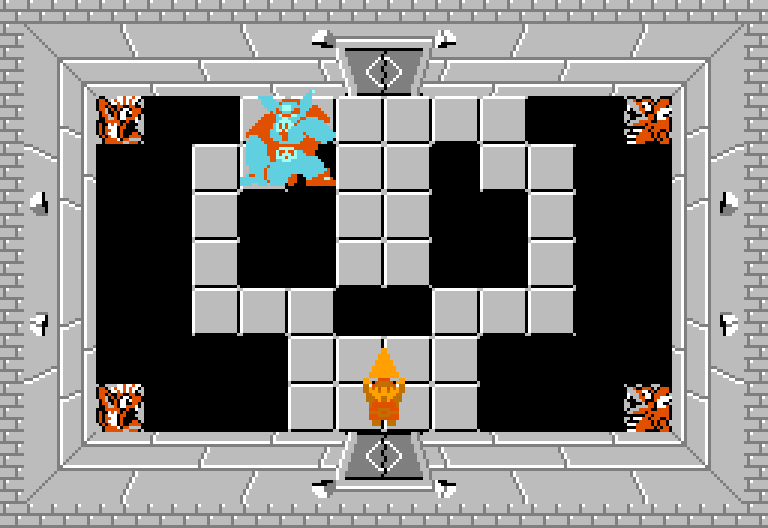
The original Legend of Zelda title finds itself stagnant this year, neither rising nor falling, which may itself be an accomplishment since our list tends to favor newer, bigger Zelda titles over the ones that came before. No doubt the respect this title commands is a big part of why it consistently ranks ahead of some newer titles, but another big reason is maybe the most simple explanation: this 8-bit adventure still holds up.
“The one that started it all,” Chakell Herbert reflects. “The Legend of Zelda is the Zelda game I neglected to play for so long after playing and adoring a plethora of the other titles in the series. Yes, I understand that this original was a literal ‘game changer’ for the video game industry and that, without it, we would have none of the beautiful games in the series that came after. But I felt that with it being so old, the formula for Zelda was perfected after this one! So why bother?
“But playing through, I really did start to understand why it’s such a classic. The Legend of Zelda is an open-world adventure, and it holds so many secrets and mysteries I honestly don’t even know how one could ever conquer it without a guide. I honestly salute and respect all the kids who originally played because, as a self-proclaimed Zelda expert, I was totally lost and bested by baddies throughout the entire thing. It’s not my favorite game due to the frustrating challenge level, the lack of direction, and the near-zero context of story, but I still think it deserves the recognition for being a gateway drug to all the things we love about Zelda today.”
Although many newer Zelda players like Chakell can appreciate the original title and enjoy it, there are as many players like Michaela El-Ters that aren’t as forgiving at some of the outdated mechanics. “The Legend of Zelda is an incredibly important video game. It changed the landscape of gaming and inspired a long-lasting series that has stood the rest of time for over 35 years. That’s amazing! But despite its impact on the industry, this isn’t a game I especially love. The Legend of Zelda is extremely challenging and unforgiving, and playing it in 2022 just doesn’t feel great. Calling the characters paper thin is almost too generous; there’s no substance, and the story is basically non-existent. In that sense, The Legend of Zelda is a product of its time. I recognize its importance to the video game industry, but it doesn’t really hold up all these years later.”
Ultimately, Heather Beard sits somewhere in the middle, which may be the most appropriate position since The Legend of Zelda’s spot in our Best Zelda Ever list is typically somewhere in the middle.
“For the longest time, I avoided the original Zelda game because I feared that I would not enjoy it and that it was just too old. It was not until I played the more recent Zelda-like indie game Tunic that my tune changed. I dove straight into The Legend of Zelda and gained a new-found appreciation for the entire series. I was seeing all of the little things that have carried over into subsequent games. Despite this new appreciation, The Legend of Zelda is punishingly difficult. There are some things I like about that fact because I enjoy a good challenge, and others I find frustrating because at times I have felt so lost that some of my enjoyment was diminished. It’s not the first Zelda game I would show to someone who has never played a Zelda game because of that difficulty.
“I think every Zelda fan should play it at least once. It’s nostalgic and personally made me appreciate how far the series has come since its conception.”
13. Oracle of Seasons
Highest Rank: 8 | Lowest Rank: 18 | Last Year’s Rank: 13 | Avg Points per Author Played: 9.79
6/20 Editors had not completed the game and did not rank it

For the second year in a row, Oracle of Seasons finds itself as the lower-rated Oracle title, while unfortunately also standing as one of the most under-played Zelda titles among our staff. Ultimately, however, it was the constant comparison to its sister title Ages that remains a big reason why Seasons couldn’t move up our list this year.
“Oracle of Seasons and Oracle of Ages are some of my favorite handheld games in the Zelda series,” proclaims Sid Puri. “However, Oracle of Seasons had several pros and cons compared to its sister game. I thoroughly enjoyed the mechanic of changing seasons to control terrain and solve puzzles. Trees that were once lush and bountiful could readily be changed into withered trunks to allow passageway to unlocked areas. However, at times it felt that I was getting lost just trying to go from point A to point B at multiple times in the game. It indeed made navigating Holodrum and Subrosia quite frustrating. Moreover, Oracle of Seasons was quite straightforward and similar to prior NES games, while Oracle of Ages required more forethought to solve puzzles.”
Mike Midwood, who you might call more of an old-school Zelda fan, is forced to agree with Sid’s position.
“Oracle of Seasons is one of the lesser Zelda titles that I still, ultimately, enjoy. Easily inferior to its sister game Oracle of Ages, I feel split among many of the game’s different elements. Changing the overworld’s climate with the Rod of Seasons makes for interesting exploration, but Holodrum is among the series’ most forgettable settings. It uses the excellent presentation from Link’s Awakening and even expands upon it, but it doesn’t come close to matching that game’s charm. There’s a terrific collection of well-crafted dungeons, but the overworld traversal between them is pretty boring.
“That last point is the one to focus on because these really are some great dungeons. If you’re like me, more interested in their technical design than their thematic aesthetics, this is one of the best groups in the series. Snake’s Remains, Unicorn’s Cave, Ancient Ruins, and Explorer’s Crypt are top-tier labyrinths that don’t get the love they deserve. The mechanical elements of a great Zelda game are present, Oracle of Seasons just struggles to make them feel like part of a cohesive adventure.”
12. Age of Calamity
Highest Rank: 4 | Lowest Rank: 22 | Last Year’s Rank: 12 | Avg Points per Author Played: 8.24
3/20 Editors had not completed the game and did not rank it
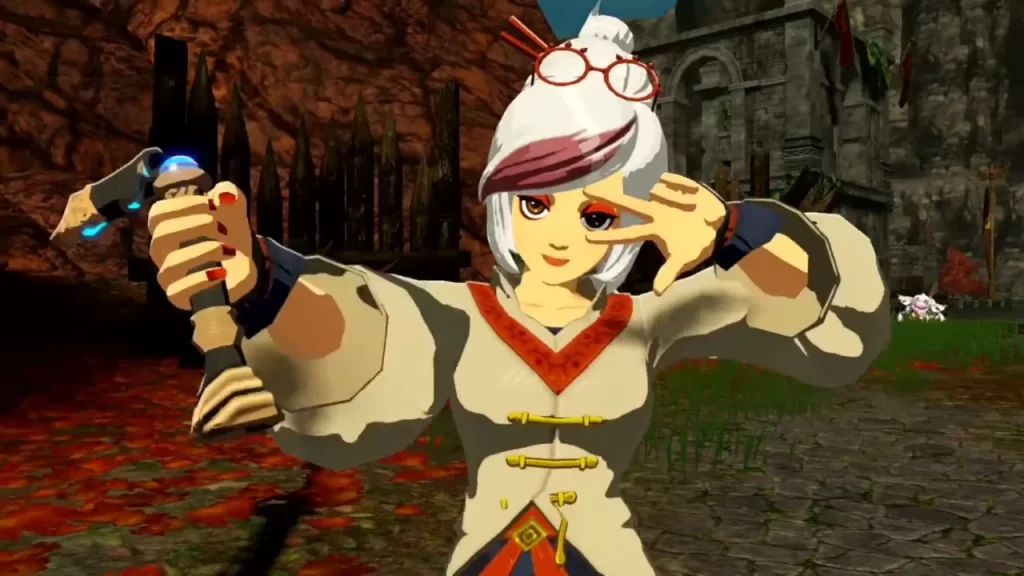
In arguably one of the more surprising shows of power this year considering its predecessors placement on our list, Hyrule Warriors: Age of Calamity manages to hold firm to its #12 spot on our list and avoid a sophomore slump. While reaction to the Warriors spinoffs has been generally divided among our staff, there’s no doubt that the tie-in with Breath of the Wild helps Age of Calamity. Even still, with more DLC releasing since last year, this spinoff game hasn’t impressed everyone.
“I was honestly shocked this game rated as highly as it did,” admits Andy Spiteri, who has spent several hours talking about Age of Calamity on The Zelda Cast. “I was expecting it to fall down the list, and maybe I shouldn’t have because the game is honestly incredibly fun — even for a non-Musou fan — and full of fun playable characters you wish you could play as in Breath of the Wild. But… the story was just so rotten that I can’t look back and say I enjoyed it.
“You know when you go see a movie and it’s really bad, but you try and convince yourself it was actually good as a way to justify your time and money? That’s how I feel about Age of Calamity,” Andy continues, ranting away. “The marketing of the game lied to us about the premise, the villain was one of the series’ worst, there was no connection to Tears of the Kingdom (that we know of yet), and the final DLC package was so underwhelming that I was finally forced to admit the truth — maybe that movie I saw wasn’t really that good after all.”
Despite the critiques, the game held firm for a reason, as writers like David Lasby are happy to share with us.
“Easily one of my all-time favorite games. Hyrule Warriors: Age of Calamity took the beautiful visuals of Breath of the Wild and gave us the story we deserved from the beginning. Having put hundreds of hours into exploring every corner of the sprawling overworld of the 2017 Game of the Year, I longed to know more about the history of the Calamity, of the great battles that were fought and lost. I wanted to know how it felt when Calamity Ganon caught the kingdom of Hyrule by surprise, when the Champions were trapped and died alone and in despair, when the beautiful landmarks dotting the continent came to ruin. And for whatever failings the game may have, Age of Calamity did deliver these things.
“Alternate timeline disputes and canonicity conflicts aside, the game delivers on an emotional level. The music is fantastic, brilliantly telling the story alongside the action and breath-taking cinematics. As I progressed toward the inevitable Calamity, I truly felt the weight of what was happening. As the battles grew in scope and intensity, I felt Calamity Ganon’s power growing. And absolutely nothing will ever top the shock I felt when the Blood Moon rose over the game’s climactic final battle field, raising to life the very army I had so narrowly survived. What a moment.
“And can we just appreciate how epic that final boss fight is? Let’s hope we get a showdown of that magnitude in The Legend of Zelda: Tears of the Kingdom.”
11. Oracle of Ages
Highest Rank: 5 | Lowest Rank: 20 | Last Year’s Rank: 11 | Avg Points per Author Played: 9.6
5/20 Editors had not completed the game and did not rank it
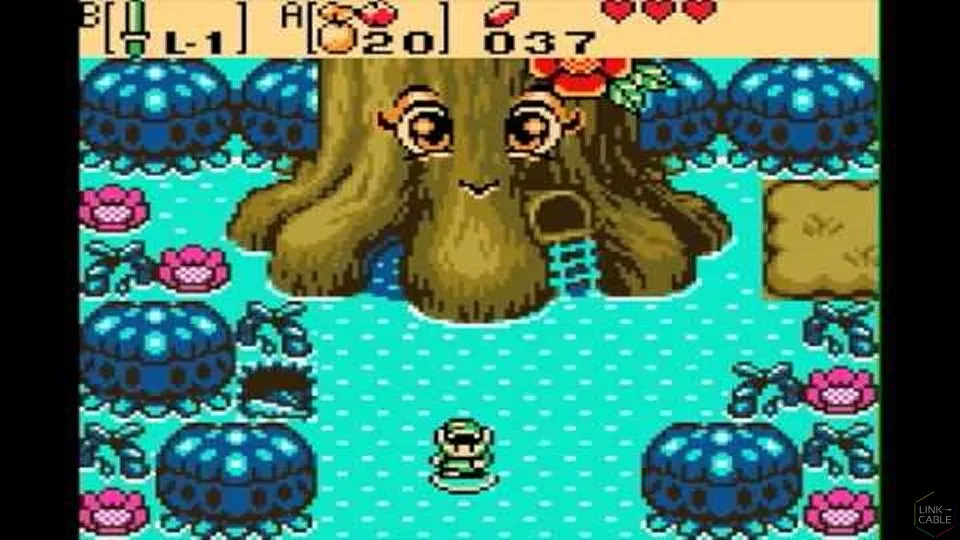
Oracle of Ages yet again comes so close, but just doesn’t quite break into our Top 10. Truth be told, there was a pretty sizable gap between the 10th and 11th spots, so in a way, Oracle of Ages can lay claim to being the “best of the rest.” Joking aside, Ages once again shows that it has an identity beyond just being “one of the Oracle games,” as it uses its clever puzzles and excellent story to put some distance between it and its seasonal counterpart.
“Oracle of Ages is, as they say, ‘a vibe,'” says John Piland, a very cool dude. “A beautiful color palette, memorable and unique music, lovable characters, a fantastic main gimmick in time travel, countless fun mechanics, and just an overall great experience, this game is one that will always have a sweet spot with me, right alongside its sister, Oracle of Seasons. I love that Nintendo was able to do what they did with Ages on the Game Boy Color, and it still amazes me to this day when I think about it. Who would have thought that that much fun, that much creativity could fit in such a small package? If there’s one word I’d give this game to describe its vibe, it’d be ‘serene,’ on account of it reminding me of the serene feeling I always got during the first time I played an Oracle game in the early Autumn month of October.”
Chakell Herbert agrees, for the most part. “Oracle of Ages is the latest Zelda game I’ve been introduced to, with Seasons being up next for me! After a play through, I have to say I would love to see a remake of these two adventures, perhaps similarly to the treatment Link’s Awakening was given. Ages was so much fun and charming with its use of time travel. Also, it could be extremely challenging at times too, with its fantastic puzzles and devious dungeons. The boss fights were also memorable – Pumpkin Head being one of my favorites (Halloween-lover over here). I also really enjoy when Zelda games take a trip outside of the usual setting of Hyrule and explore a neighboring land that has equal amounts of drama Link has to settle.”
One thing that Chakell brings up, however, is perhaps why many Zelda fans, despite Oracle of Ages and Seasons being vastly different games, lump these two titles together all the time.
“I enjoyed Ages, but I also think the biggest thing the Oracle games suffer from is their need for each other. They are independent for sure, but to get the full experience and enjoyment, I feel you need both for the adventures and stories to feel complete and strong enough to stand against other impactful titles in the series.”
10. The Minish Cap
Highest Rank: 1 | Lowest Rank: 16 | Last Year’s Rank: 10 | Avg Points per Author Played: 12.82 | First place finishes: 1
3/20 Editors had not completed the game and did not rank it

From here on in, we run into a bit of a log-jam with our catalog, with many games not seeing any significant movement on our list — perhaps fitting, since the Zelda series as whole did not see any significant movement this year. The first game to stay in the same spot is The Minish Cap, which put a significant distance between Oracle of Ages, but fell just shy of overtaking the #9 spot. Even so, Link’s Game Boy Advance adventure is one of the most popular titles among our staff, as Alexis Anderson details.
“This game is a real gem. Almost every character is charming, the Kinstones component is fun, and the visuals are brilliantly bright. I loved having Link’s companion be his literal hat. Turning tiny is great; I’ll never forget going into that barrel with all the spiderwebs! The Minish Cap doesn’t take itself too seriously, but the gameplay is solid. There are certain handheld Zelda games to which I’ve given the ‘ol college try and just did not connect with (and couldn’t bring myself to play all the way through), but The Minish Cap enchanted me from frame one and I couldn’t put it down.”
Andy Spiteri agrees wholeheartedly. “I’ve said it before. I’ll say it again. I’ll say it a thousand times: there is no more underrated title in the Zelda series than The Minish Cap. I mean that. This game is so charming, so whimsical, so colorful that it just made me fall in love with it right away. There are unique items and a surprisingly great (for GBA standards) soundtrack, but maybe my favorite thing about this game is that it understands that less is sometimes more. It doesn’t go overboard with 12 dungeons that all kind of look and smell and taste the same; instead, it gives you six awesome, unique dungeons, each with a theme and identity to set them apart. I just love this game so much, and it breaks my heart a little bit every time I see a Zelda fan dismiss it.”
Perhaps the most touching testimony The Minish Cap received was from Andrew Millard, who ranked this as his favorite Zelda game.
“I was surprised last year that The Minish Cap suddenly revealed itself as my favorite game in the series. And though maybe it was just because I’d recently replayed and loved it. It stuck, though! In 2022, my daughters have taken to gaming on the go, so I put The Minish Cap in both their hands. We’ve had so much fun geeking out over its familiar yet niche take on the classic 2D formula! My girls and I often draw together for hangout time, and Ezlo, the Minish, and the game’s take on Big Goron were favorite subjects for doodling.
“I doubt I could elaborate on my love for it better than I did last year, but I’ll try. The Minish Cap is pure delight. It occupies the same shelf in my mind as the Nausicaa of the Valley of the Wind manga, Portal, and James Joyce’s “The Dead”: Small doses of absolute perfection that can be picked up in any mood. Skip to any random moment in them, and you’re sure to be impressed. That I got to share that love with my kids this year only certifies it. If you’ve never played it, I envy that your first time still awaits.”
9. A Link Between Worlds
Highest Rank: 1 | Lowest Rank: 17 | Last Year’s Rank: 9 | Avg Points per Author Played: 13.38 | First place finishes: 1
2/20 Editors had not completed the game and did not rank it
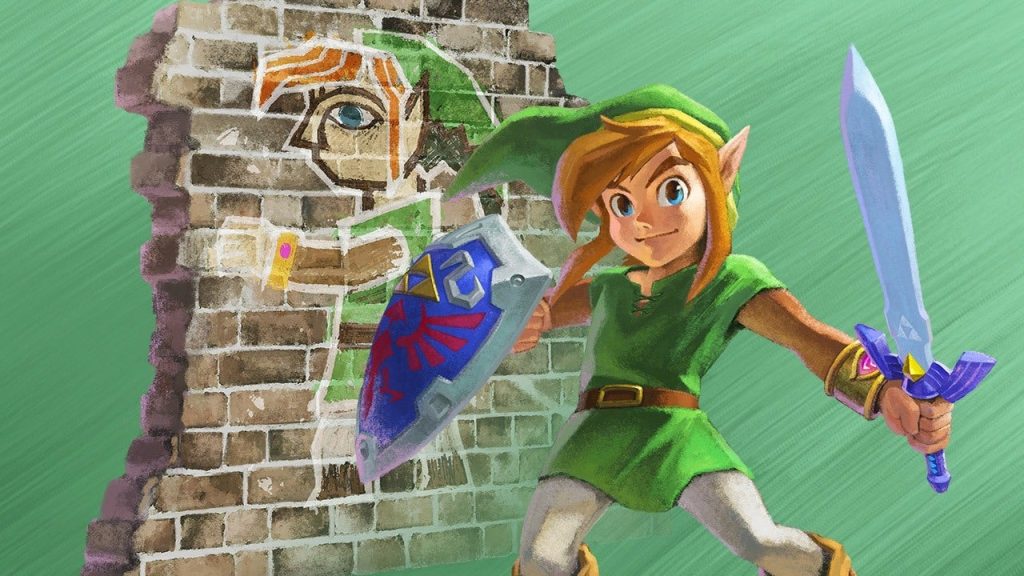
A Link Between Worlds is another title that finds itself standing still this year, after peaking in 2020 at the #6 spot. With the ten-year anniversary coming up in next year’s edition of our list, could the successor to A Link to the Past have an opportunity to move up our list? If it were up to Sean Gadus, then the answer would be, “Yes.”
“A Link Between Worlds does not get enough credit as the innovative Zelda experience that it is. The game’s central mechanic, merging into and traveling on flat walls, is a brilliant concept that is incredibly intuitive and flexible. This gameplay mechanic could be the main mechanic of its own sub-series, but unfortunately Nintendo has never used the idea in another Zelda project (though Super Mario Odyssey did use a version of the idea). The game’s item rental system, which allows players to tackle dungeons in any order, helped pave the way for Breath of the Wild’s Runes and Divine Beasts. With two wonderful worlds to explore, great bosses, and a rich soundtrack, A Link Between Worlds is an excellent game that has something for everyone!”
“I’ll admit that if it weren’t for A Link Between Worlds, I wouldn’t own a 3DS,” adds David Wayne Nystrom. “I purchased my 3DS from a buddy who was upgrading to the 3DS XL for this game and this game alone, and it was easily one of the best gaming decisions I ever made. My 3DS allowed me to experience one of my all-time favorite non-Zelda games, but it also helped to rekindle that passion for Zelda that had dwindled slightly. A Link Between Worlds was both deeply familiar and entirely new. I was somebody who missed out on the earlier DS entries because I was an angsty “too cool for video games” kind of kid, and yet this adventure reminded me of the magic that handheld games could offer. On the familiar side, I was still very knowledgeable about the game’s canonical predecessor, A Link to the Past. When I jumped into that same map with a new hero and a new mission, I was entirely hooked.
“What it laid the foundation for also is remarkable. The “choose-your-path” sort of mechanic with open world temples and instantly acquirable items (at least with enough rupees) really invite you into making it your adventure. The uniqueness of this approach, spread across what appears at first to be a typical Zelda story, makes the game historic in its own right. Had it not been such a successful entry and experiment, we may be here today without the iconic Breath of the Wild.”
Rod Lloyd has ranked A Link Between Worlds as his favorite Zelda title every year we have ran this list, and for good reason: this game not only brings together different worlds, but different styles of gameplay that the Zelda series has perfected over the years.
“A Link Between Worlds? More like Best of Both Worlds. At release, A Link Between Worlds served as both the ultimate culmination of 25+ years of classic Zelda design and a bold step forward for a series beginning to feel a little stale. By revisiting the world of the beloved A Link to the Past and indulging in nostalgia for Zelda‘s pre-3D peak, Between Worlds re-calibrated the series with a ‘back-to-basics’ approach and, at the same time, provided players a safe and familiar venue in which to test out its more revolutionary ideas.
“Forcibly breaking out of the Zelda formula ironically established in A Link to the Past, A Link Between Worlds embraced non-linearity and player freedom — well before Breath of the Wild even had a title. But it didn’t throw the baby out with the bath water. The game struck just the right balance, allowing players to rent items and tackle dungeons in any order while still preserving the structured progression, character growth, sense of exploration, and narrative focus that players expected from the Legend of Zelda name.
“That balance — further enhanced by a charming world, rewarding side content, stellar music, and intensely satisfying gameplay — ultimately produced what I consider to be the perfect Zelda experience.”
8. Link’s Awakening
Highest Rank: 3 | Lowest Rank: 18 | Last Year’s Rank: 8 | Avg Points per Author Played: 12.75
0/20 Editors had not completed the game and did not rank it
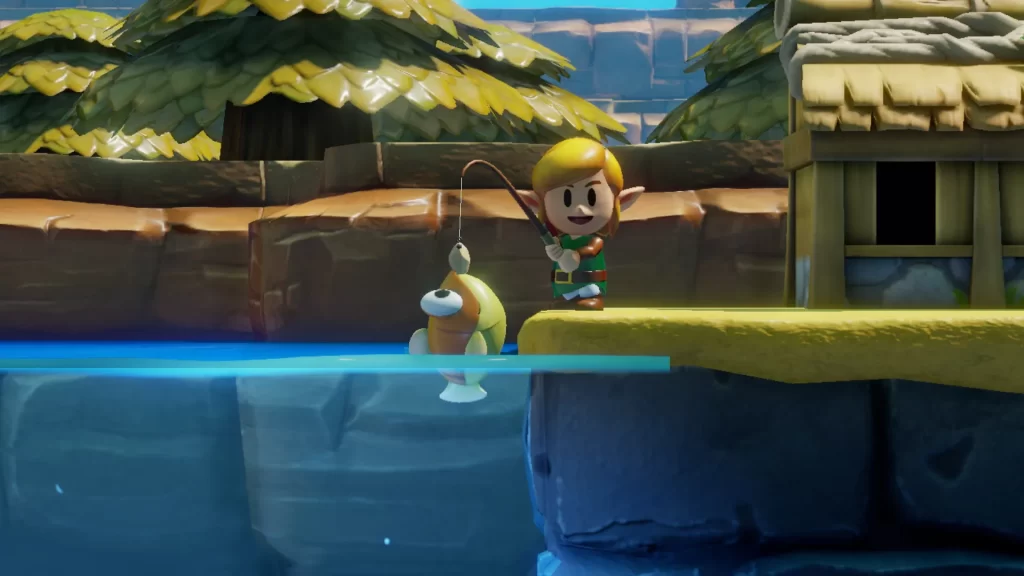
Link’s Awakening is the latest Zelda game not to bend or budge, remaining steady in the #8 spot, which is a bit surprising given that the 2019 remake gave it such new life. Even more curious is that this game is universally highly regarded among our staff — no one really ranked it very low — and yet, Link’s Awakening is still stuck in a dream of its own when it comes to our list.
“For a long time, Link’s Awakening sat in my personal Top 3 Zelda games, and Top 10 of all games ever,” reminisces David Wayne Nystrom. “I can’t say I’ve gone back and thought about where it ranks all-time for me anymore, but it’s only slipped slightly in all the years. I can’t say exactly why, but perhaps my love of direct story and certain mechanics just changed over the years. That said, Link’s Awakening, whether on the original Game Boy, the DX version a few years later, or the modern 2019 remake for the Nintendo Switch, is a tremendous journey out of Hyrule and into the larger world. When the 2019 remake was announced, I felt all the emotions and memories return and then some because, for the first time, my son was old enough to share in the excitement. While his favorite Zelda game might not be mine, he will forever remember me handing him the controller for the first time and it being Link’s Awakening. A poetic and significant moment for both of us, and one that ensures its place as one of the best Zelda’s ever.”
Judy Calder, who like many, never had a chance to experience Link’s Awakening until the remake came out, agrees. “Link’s Awakening (2019) fits comfortably in my top 10 favorite Zelda games. It’s one of the shorter titles in terms of gameplay, but that doesn’t mean it’s lacking by any means.
“The art style of Link’s Awakening is like nothing we’ve seen in a Zelda game before. Its quirky (and chunky) design and color pallet feels strangely comfortable to me. I also really enjoy the NPCs! Marin, in particular, is just enchanting. My heart warms in regards to Marin’s friendship with animals and monsters alike, and I do enjoy some of Link’s innocent misadventures with her too. When it comes to dungeons, this game offers a mildly challenging experience, but I still feel as though I’ve accomplished something by the time I’ve beaten the boss. Pacing also feels completely on point too. Within the short time taken to gather the required instruments and proceed to the final boss, Link becomes suitably equipped and skilled enough to complete an effective final battle. Link’s Awakening is a dreamy title that deserves its place in this ranking. This instalment is chock-full of charm, compelling me to return to Koholint again and again.”
While Link’s first adventure outside of Hyrule may remain stagnant on our list this year, the success of Zelda and the Nintendo Switch give it hope for a new generation of Zelda fans.
“Thanks to 2019’s Switch remake — with its sound & graphical overhauls and various quality-of-life improvements — Link’s Awakening has transformed from an overlooked, if a bit dated, gem to a bonafide classic,” sums up Rod Lloyd. “While certainly not as ambitious as A Link to the Past or as spectacular as Zelda‘s 3D offerings, this bite-sized adventure is a distillation of everything that makes Zelda special. The game’s bright & colorful world, child-like presentation, and stellar soundtrack capture the series’ unique brand of fantasy. The game’s impeccable pacing, trendsetting trading sequence, and fiendishly clever puzzles capture the series’ satisfying sense of adventure. And the game’s charming cast of characters, surprising plot-twists, and willingness to go weird capture the series’ achievements in storytelling. Link’s Awakening gets just about everything right, and a whole new generation is beginning to realize that.
7. Skyward Sword
Highest Rank: 2 | Lowest Rank: 15 | Last Year’s Rank: 7 | Avg Points per Author Played: 12.85
0/20 Editors had not completed the game and did not rank it
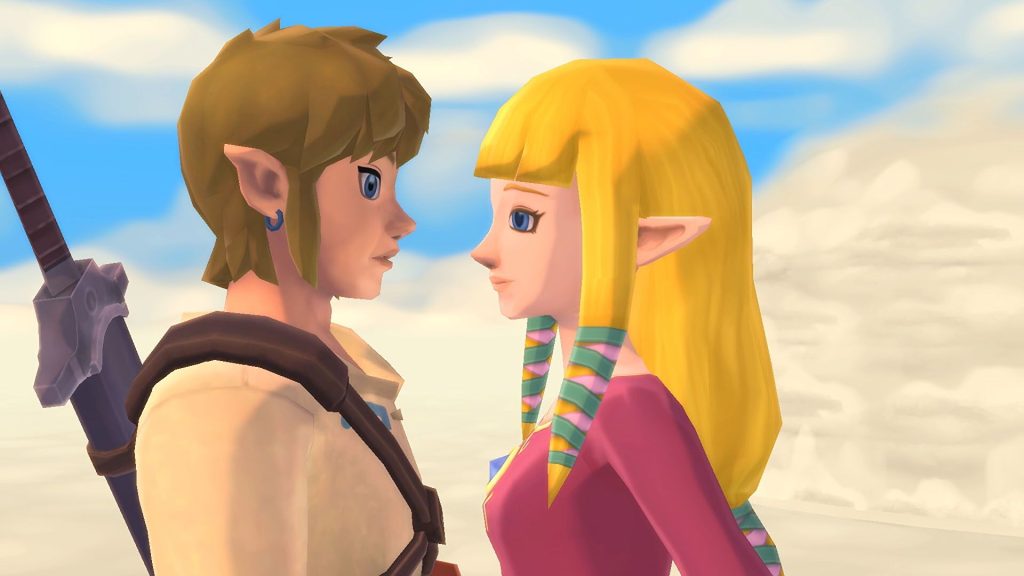
The most polarizing Zelda game in the series finds itself stuck in a similar position on our list, although it was in a neck-and-neck race for 6th spot that it just missed out on. Despite last year’s HD re-release of Skyward Sword for Nintendo Switch offering a lot of fixes for small problems, it seems that the the game’s largest issue has kept it from advancing up our ranks. That issue, the paradox that Skyward Sword has existed in since its release ten years ago, lies in its identity as a game that arguably perfected a formula that had served the Zelda series so well, but was beginning to feel a little tired at the same time.
“As the first entry in the Zelda timeline, I love the story Skyward Sword tells and the stage it sets,” explains Kat Vadam, giving a great example of the paradox we mentioned. “Parts of it even made me cry, laugh out loud, cheer, feel this whole range of emotions that I often attribute to a good game. That said, I will admit that I rank this game roughly mid-tier on my list of personal favorite Zelda games. The main reason for this is how much tedium I felt in between points of real emotion. I felt almost too much emotional ‘down time’ just trying to complete one step after another to get through it, and I often just had to put the game down and take a break. I wasn’t as engaged with it, and I often found myself frustrated or bored. It was pretty, it was fun, and overall, I do count it as a ‘good’ game. Still, there are games in the series that I had more fun with, that made me feel from beginning to end, and therefore, I rank them higher.”
As is the way with this adventure, while one editor offers up critiques, another will usually follow behind with gushing praise, as Alex Weber takes it upon herself to heap.
“A glorious adventure. A heart-warming tale of heroism. An immersive world full of gorgeous landscapes and tiny details alike in beauty. A game that came as close as possible to perfection when it came to a traditional three-dimensional Zelda game. And no, I’m not talking about Ocarina of Time. Skyward Sword has earned its place as my second-favorite Zelda game several times over, as every time I rewatch it or replay it, I fall in love all over again with the immaculate dungeon design, the breathtaking music, and the heroic story it provides. Although not perfect, as the Imprisoned is required to be fought three too many times, the game will always hold a special place in my heart.”
While ultimately, the first canonical Zelda adventure may never be for everybody, Sean Gadus is content to look beyond all the noise and see the game for what it is: another exceptional Zelda title in a long line of them.
“Skyward Sword is one of the most polarizing Zelda games in the series. Critics of the game will rightfully point to a number of issues such as pace-killing hand-holding, the underdeveloped Sky areas, and a third act filled with unnecessary errands and fetch quests. Yet for fans who build a strong emotional connection with the game, there are few games that shine brighter than Skyward Sword. The game’s soundtrack, the first fully orchestrated soundtrack in the series, is one of the best collections of music across the entire series. The game’s antagonist, Ghirahim, is a sneering, preening, and hugely entertaining sadist that is among the most evil villains in the series. Often lost in the constant debate about Skyward Sword’s merits and flaws is the important place the game holds in Zelda history. For better or worse, the game closed the door on the semi-linear 3D Zelda era which began with Ocarina of Time in 1998.
“In a post-Breath of the Wild world, where it seems like every big game has to have open-world elements and hundreds of hours of content (even if that content isn’t meaningful, creative, or interesting), I miss the simple joy of going on a scripted, well-directed journey that games like Skyward Sword had to offer.”
6. The Wind Waker
Highest Rank: 2 | Lowest Rank: 19 | Last Year’s Rank: 4 | Avg Points per Author Played: 13.2
0/20 Editors had not completed the game and did not rank it
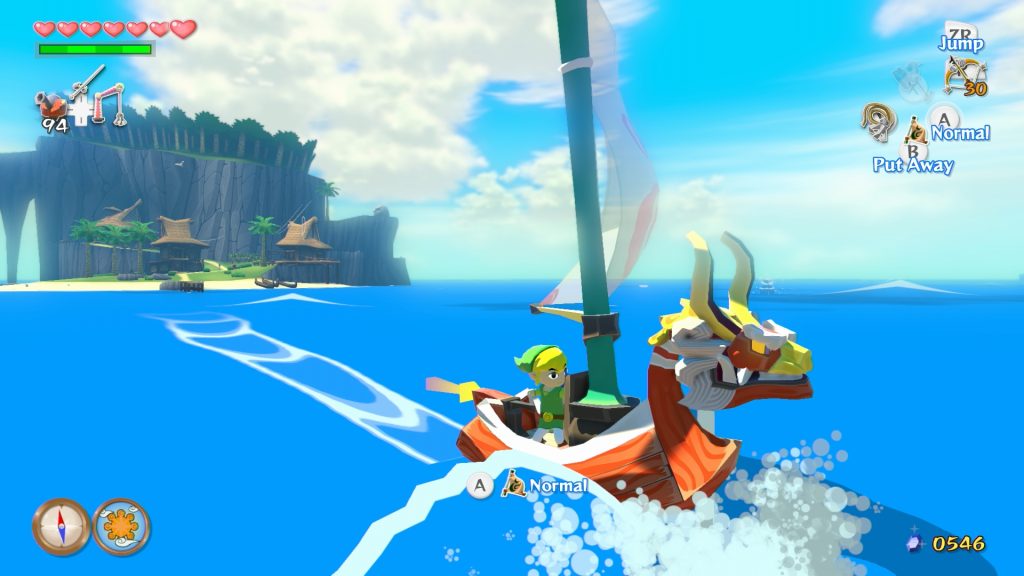
We finally have some movement on the list! Although, perhaps not the kind of movement that The Wind Waker would have liked to see, as it sinks down the list two spots and fought for its life to not drop down any lower.
“It’s impossible not to be smitten with the unrivaled audiovisual design of The Wind Waker,” explains Mike Midwood, who was one editor who gave a lower spot than most to The Wind Waker. “The gorgeous cel-shaded graphics perfectly compliment the simplistic modelling of characters and The Great Sea’s vast emptiness. The charm this game exudes generated some of the best new characters, and some of the most iconic versions of returning favorites. Coupled with arguably the series’ best soundtrack, The Wind Waker is a delight for the senses.
“Unfortunately, The Wind Waker is also a video game, and in that capacity, it falls short for me in almost every way. This is where the trend of an extended, linear introduction began. The player basically can’t do any exploration until after Forbidden Woods, and it isn’t really worth doing until much later than that. Combat and puzzles have been simplified to such a radical degree that it’s hard to gain any satisfaction from them. Worst of all is one of the weakest collections of dungeons in the series. For me, The Wind Waker is a beautiful and charming game with little substance beneath the surface.”
Still, despite falling down from the top 5, Link’s cel-shaded adventure is still timeless enough to capture the hearts of many Zelda players of a certain age.
“Although I was introduced to Zelda through Super Smash Bros. and sessions of watching friends play Ocarina of Time, the first entry I properly experienced myself was The Wind Waker,” shares Brandon Schmitz. “As such, it will always hold a special place in my heart. The Great Sea fosters such an unbridled sense of adventure, while its story and themes are deeper than its visuals might suggest. Speaking of which, The Wind Waker’s art style has aged more gracefully than that of any of its brethren. Likewise, the journey as a whole is a timeless one that solidified the Zelda team’s unabashed willingness to take risks.”
“When I think of The Wind Waker, I think of nostalgia,” romanticizes Heather Beard. “It’s likely because The Wind Waker is one of the games that defined my childhood, and I find something special in that. The Wind Waker, in my opinion, is one of the most unique Zelda games in the entire series. It brought in an almost ‘open world’ experience, a massive map, and some of the best dungeons and music in the entire series. Critics of the game will say that The Great Sea does not have much to offer and that the time to get from place to place is daunting. Others are not a fan of the art direction. Despite these things, The Wind Waker gave Zelda fans something new and different. The story of the foretold hero is roughly the same, but I enjoy the new spin on this story. We see a fallen and flooded Hyrule, and it gives the series more depth in my opinion.
“The Wind Waker, on the whole, is one of the best Zelda games because all of these things combine together to bring an unforgettable experience on The Great Sea.”
5. Majora’s Mask
Highest Rank: 1 | Lowest Rank: 22 | Last Year’s Rank: 5 | Avg Points per Author Played: 13.4 | First place finishes: 1
0/20 Editors had not completed the game and did not rank it
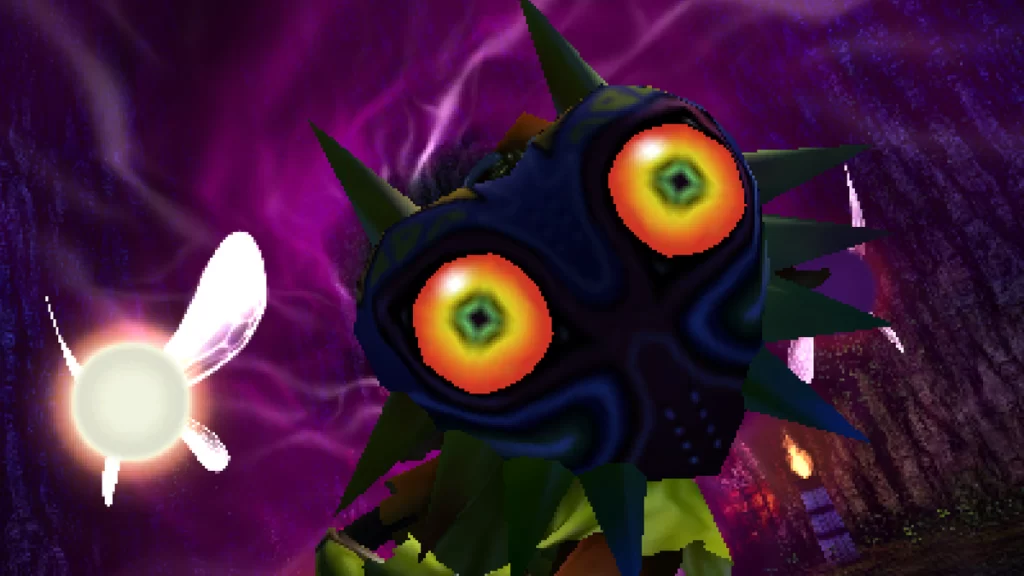
Majora’s Mask is a curious case this year. The only game other than Ocarina of Time (so far) to top our list, Majora’s Mask has never really seemed to gain the traction it had back with our staff in 2017, when it finished first. Curiously, a big reason for it not making a push for a higher spot this year, despite it being a highly ranked game among almost all the writers, is two dead-last finishes that it received.
“Majora’s Mask kicks off the top third of my Best Of list. To be honest, I’m not sure that’s what it deserves,” ponders Andrew Millard, who ranked the adventure lower than most. “It sits in about a three-game stretch of titles best summed up the way I think of cooking as a hobby: If you’re good at it, awesome! The results must be so satisfying. But the effort it’d take me to get there would still only amount to a dog’s breakfast. I find it the ugliest of the older Zeldas. Through no fault of its own, it comes from the era of visuals that has aged the worst. And, yet, somehow its predecessor, Ocarina of Time, overcomes that homeliness. Purely subjective, I know. And while the time loop conceit is fascinating, it smells just a bit of the Rogue-like genre, another one of other people’s yums that I try not to yuck. To give it a little credit, it is beloved by friends and critics whose opinions I thoroughly respect. Maybe that means it deserves one more blast of the ‘Inverted Song of Time.'”
Still, despite a few of our writers not appreciating the unique gameplay mechanics — which admittedly, can make Majora’s Mask less accessible to play than many other titles in the series — we are reminded that Link’s adventure in Termina topped our list once upon a time for a good reason: it dares to be different.
“The older I get, the more I love this game. It’s so refreshingly different from any other game in the Zelda series.” says Michaela El-Ters. “The three-day time travel mechanic adds a sense of urgency to both the story and gameplay. There’s always a sense of having to start anew with each cycle, but instead of being punishing, it’s rewarding. The sidequests and the various outcomes they can have depending on your actions feels reminiscent of modern games coming out today… except Majora’s Mask released over 20 years ago. In that way, Majora’s Mask was incredibly ahead of its time.
“Every time I read about the extremely quick turnaround on this game during its development, I’m continuously blown away. Nintendo used every asset to their advantage to craft a sinister and memorable story. Majora’s Mask may have been considered a gamble at one time, but it absolutely paid off.”
Charles Xavier has long ranked Majora’s Mask as his favorite Zelda game, and extolls the virtues of this dark Zelda title.
“I have always loved Majora’s Mask for its unique tone that no Zelda game since has been able to recapture. I really enjoyed how it highlights side quests, many of which are intertwined, in a way that makes the citizens of Termina feel real. I’ll never forget following Ingo out of the Stock Pot Inn to the Mayor’s Residence, and having my mind blown that this NPC appeared to be opening doors and walking through them! I was invested in meeting every NPC and completing every side quest, which is a rare thing for a video game to compel me to do. The side quests in Majora’s Mask are by far the best the series offers. I could talk about all the memorable side quests all day, but really it should not be forgotten that even the main quest is driven by compelling moments of character interactions, with many overlapping themes; this is why I feel the game has the strongest story in the series.
“The gameplay is extremely solid as well. And the twist of the three-day timer alongside the time controlling mechanics via the “Song of Time” adds an extra layer of challenge. The transformation masks were a really cool feature as well. The dungeons all feel unique, with some puzzles that posed more of a challenge than anything I was faced with in Ocarina of Time. Being a sequel to Ocarina of Time, I appreciated that the dungeons were not steps back in terms of difficulty. Everything in the game feels like it builds off of and improves on what Ocarina of Time set the bar for, which is amazing considering Ocarina of Time seems like it is hard to top.
“Summarizing Majora’s Mask into one word: Masterful.”
4. A Link to the Past
Highest Rank: 1 | Lowest Rank: 20 | Last Year’s Rank: 6 | Avg Points per Author Played: 13.55 | First place finishes: 1
0/20 Editors had not completed the game and did not rank it
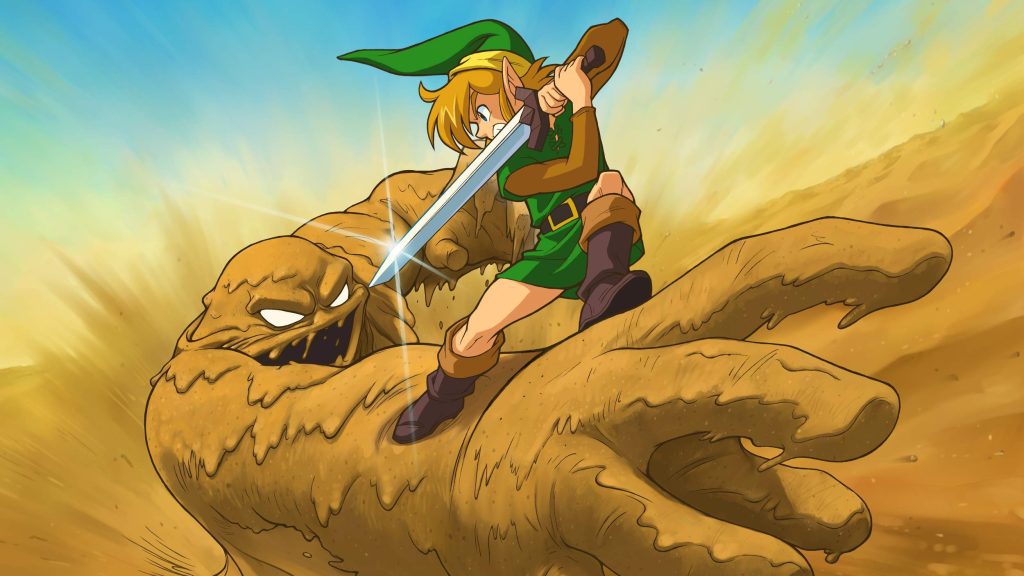
When one thinks of the Mount Rushmore of the Zelda series, it would be impossible to leave A Link to the Past off the side of that mountain, which is fitting, as the Super Nintendo title climbs up two spots this year, leapfrogging Majora’s Mask, to claim a spot in the top four.
“For as much deserved credit as Ocarina of Time gets for establishing the template by which most subsequent Zelda games would follow, it’s easy to overlook just how much Link’s SNES quest contributed to the series’ identity,” pontificates Brandon Schmitz, accurately giving credit where credit is due. “So many of the structural elements that we associate with the pre-Breath of the Wild era began with A Link to the Past. Yet, unlike the original Legend of Zelda — which understandably feels less like a proper Zelda game and more like a blueprint for one — A Link to the Past is still a blast to play. Its core gameplay remains fluid and fun, its dungeons varied and distinct, and its aesthetic vibrant and crisp. In many ways, it feels like the Zelda formula distilled into its purest form, yet it retains much of the charm and whimsy that would be brought to the games that followed.”
“It goes without saying that A Link to the Past is a fantastic game; it is the best 2D Zelda to this day,” boldly exclaims Alexis Anderson, agreeing with Brandon’s take. “There are moments in the game that are challenging, and I think that helped completing it feel like a big accomplishment and cement key parts of the game in my memory. The story is also compelling; even though somewhat sparse, it conveys a sense of urgency from the minute you step out into the stormy night. The bosses are memorable, it established a lot of Zelda norms (like navigating two worlds and having to help a certain amount of sages or collect items tied to temples/dungeons), and the music is incredible. I sound like a broken record, but the Sanctuary song does not get the praise it deserves. A Link to the Past set the bar for 2D Zelda games.”
A champion for A Link to the Past was David Lasby, who has find memories of playing the SNES adventure, and even fonder memories of playing it still today.
“Many games come and go on my “all-time” list; Elden Ring, Breath of the Wild, Halo. These games all defined eras in my life, reshaped how I understood gaming, made me fall in love with the medium all over again. But nothing ever matches that euphoria of first love.
“I grew up in the 80s and 90s, a child of the 8- and 16-bit eras. I was a huge fan of the original The Legend of Zelda on the NES; the top-down style of gameplay fascinated me. I was disappointed with how Zelda II: The Adventure of Link went away from that perspective. I waited and wondered if Nintendo would ever return to what worked so well for me. When I finally got to play a pre-release demo of A Link to the Past at my local shopping mall, I was gifted a core memory of childhood that has stayed with me for life. The rain falling on a dark and stormy night as Link made his way into the castle, taking the Sword and Shield in the dungeon sewers; the daring raid on Hyrule Castle’s deepest dungeon; the improbable escape through the royal sewers with Princess Zelda – the game captured my attention from its opening moments and never let go. Three decades later, I still play the game once a year; each time I am amazed at how well the game holds up.
“The Legend of Zelda: A Link to the Past isn’t just the best Zelda game ever; it’s the best video game ever.”
3. Twilight Princess
Highest Rank: 1 | Lowest Rank: 18 | Last Year’s Rank: 3 | Avg Points per Author Played: 14.4 | First place finishes: 2
0/20 Editors had not completed the game and did not rank it

Long before Breath of the Wild came to reinvent the series, Twilight Princess reigned supreme as the highest-selling Zelda game, and thus, was the entry point for many new fans into the series, which is reflected in our list as many writers ranked Twilight Princess as their favorite Zelda game.
“I have a special place in my heart for Twilight Princess because it’s one of the Zelda games that I’ve worked really hard to speedrun,” says Judy Calder, showing a different kind of appreciation for Twilight Princess. “I’ve experienced it as a casual means of enjoyment, exploring every nook and cranny of the map, finding hours of enjoyment in its moody world. I’ve also spent untold time practising tricks, learning routes, and endeavoring to beat my personal best record, all of which can feel quite punishing at times. When those times get tough, however, I take a moment to admire how utterly fantastic this game truly is.
“Just look at Midna, one of the most memorable companions in the Zelda series. Her feisty attitude and eventual friendship with Link is a massive emotional draw to this game. Then there’s the wolf mechanic, which shook up the standard way you might expect to play this game. Transitioning to Wolf Link added a bit of spice to any battle, which I quite enjoyed. The world itself was rather grand in its day; and although it is limited by today’s standards, I think it still delivers an acceptable map space on which to play. Most of all, the dungeons in this game are where it’s at. Each dungeon is intricately designed to suit the abilities of the player as they progress in the game, and they’re pretty cool to look at too! Each dungeon theme exudes the Zelda tones we’ve come to know and love.”
Sid Puri agrees, and offers a story of how Twilight Princess affected him personally. “Twilight Princess holds a special place in my heart. Hurricane Katrina had just devastated my life and we were recovering slowly. The Wii had come out and this glorious Zelda game was finally available. I remember how excited I was to finally journey beyond Ocarina of Time, Majora’s Mask, and The Wind Waker. I loved the dark nature of this Zelda game and the metaphorical nature of the Twilight people, as if they were in limbo between life and death. Midna’s character was fascinating, and I honestly couldn’t tell if we could trust her at first. The story was amazing and the climactic scenes of Link riding Epona were so memorable. It definitely is one of my favorite games in the franchise, especially with its influence from various Lord of the Rings-esque scenes.”
While some members of our writing staff may poke fun at the game’s… inspired choice of art style, there’s no denying that Twilight Princess offers up a grand adventure and speaks to the hearts of many Zelda fans — our writers included.
“It’s fall 2006. In an era when mall Gamestops were still the go-to location for buying new games, I remember seeing moody posters for Twilight Princess plastered onto store windows alongside advertisements for the impending release of the Nintendo Wii,” recalls Kora Burton, a smile on her face. “Upon release, Twilight Princess brought a kind of ‘adultification’ to the series; and while it’s easy to identify its goofy moments and chortle at them now, Twilight Princess’ aesthetic has set much of the nostalgic tone that I have for Zelda as a whole. It’s a very pretty game. This attachment partly has to do with the fact that Twilight Princess’ protagonist was the definitive Link for many years until the release of Skyward Sword, highlighted by his inclusion in games like Super Smash Bros. Brawl.”
“Largely, though, Twilight Princess’ impact comes down to its essential elements: a thematic musical score worthy of elaborate symphonies, characters laden with touching emotional weight, and a combination of both heart and art. Where Breath of the Wild fails to follow through on satisfactory character development, particularly with its Champions, Twilight Princess shines with its Princess Zelda, Midna, Zant, Agatha, Telma, and more. Wolf Link even feels like he has his own personality that runs along Link like a shadow. Sure, Twilight Princess contains plenty of the weird and the edgy that feels so characteristic of the time period, but the fact that it does so with such unapologetic humor makes me love it even more. Finally, being that I’m a lover of the sunset hour as day turns to night, Twilight Princess may contain my favorite Zelda intro of all:”
“Tell me… do you ever feel a strange sadness as dusk falls?”
2. Breath of the Wild
Highest Rank: 1 | Lowest Rank: 14 | Last Year’s Rank: 2 | Avg Points per Author Played: 15.25 | First place finishes: 5
0/20 Editors had not completed the game and did not rank it

What do you say about a game that redefined and, yes, revitalized a series? A game regarded as one of the greatest of all time? A game that not only broke but shattered all previous sales records for the series and is now one of the highest selling games ever? Indeed, there’s not much more we can say about Breath of the Wild that hasn’t been said before.
“Sometimes it’s hard to describe just what it is that makes a piece of media special to you,” says Kora Burton. “For me, Breath of the Wild’s near-top spot on this list isn’t difficult to contend with at all. It’s accessible to both long-time fans and beginners, with myriad ways to make its difficulty level suit either. It contains so many easter eggs and references to previous games, while not requiring knowledge of these retrospective elements in order to enjoy the title. Breath of the Wild suited me great as someone essentially in the middle of the pack; I grew up having some familiarity with major Zelda titles, mostly through cultural osmosis and looking over family and friends’ shoulders when they played. That being said, before college I myself had little personal access to, and thus experience with, the beauty of Hyrule. I just knew I was drawn towards it.”
Kora continues: “Breath of the Wild allowed me to fully immerse myself in the pure discovery of a Zelda adventure, without the barrier of needing to know how a typical Zelda game works or feeling lost in getting all the steps of progression completed in just the right order. Beyond this, Breath of the Wild has carried a cinematic charge to it ever since the initial trailers for the game, combining its musical theming and emotional framing with an adventure that vibrantly catalyzed the open-world revolution in modern gaming. While there’s no perfect piece of media, Breath of the Wild is the kind of game you always want to see more of – which is why the staff here, me included, love speculating about what Nintendo will build on top of one of the best games of all time for its upcoming sequel.”
“I wrote before that The Legend of Zelda changed the video game landscape when it first released over 35 years ago,” opines Michaela El-Ters, offering a unique take that both heaps praise on the reinvention of the series while at the same time longing for the formula of the past. “It’s fitting then that another Zelda game in the lineup managed to shake up the formula. Breath of the Wild was a monumental achievement when it came out in 2017. It got rave reviews, critics and fans alike loved it. I adored the emphasis on open-world exploration and taking the story at your own pace. The departure from the usual Zelda formula was fresh and inventive. The number of copy cats that emerged after this game came out, trying to recapture the magic, was both surprising and inevitable. For a one off, Breath of the Wild was perfect.
“Don’t get me wrong, I love this game a lot! I will never forget my first few hours playing it. I was totally onboard with the exploration, weapon durability mechanics, the Shrines, everything. I’m also very excited for the sequel, Tears of the Kingdom. But I do miss the classic formula as well, and I worry that the Zelda series will stray from what made games like Ocarina of Time and The Wind Waker near and dear to my heart. Time will tell, but I stand by Breath of the Wild being a fantastic and inventive entry into an already amazing series.”
Ultimately, Breath of the Wild has won every award, been recognized so often, that the only thing left for it to do is eventually top our Best Zelda Ever list — something Kat Vadam thinks is only a matter of time.
“Talk to me about Zelda for more than thirty seconds, and it becomes clear that Breath of the Wild is one of my top favorite games in the series, second only to one. The amount of time I have sunk into this game is more than any game — Zelda or otherwise — in my entire history as a player. I have scoured every corner of the map, opened every treasure chest, found each and every Korok, seen the elusive 100% on my screen, and every time I think I’ve done it all, someone, somewhere, discovers something new.”
“I always seem to find myself right back in the middle of this Hyrule, reliving the game once more, like a comfortable blanket that brings happiness and warmth. And while I understand that the game has its faults (what game doesn’t?), I do not think my love for the most recent entry in the Zelda series will ever wane. Breath of the Wild deserves its high place in the Best Zelda Ever, and I cannot wait to see where its influence takes the series going forward.”
1. Ocarina of Time
Highest Rank: 1 | Lowest Rank: 8 | Last Year’s Rank: 1 | Avg Points per Author Played: 17.32 | First place finishes: 9
0/20 Editors had not completed the game and did not rank it
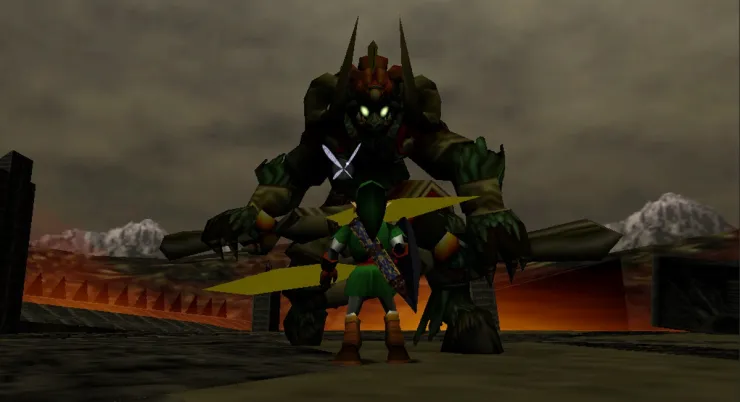
What other game could it be?
For the unbelievable fifth year in a row, Zelda Dungeon is proud to crown Ocarina of Time as the Best Zelda Ever.
“Here Ocarina of Time sits at number one,” says Chakell Herbert, who acknowledges the gaming giant. “Call me biased, call me blinded by nostalgia, call me whatever you want, but my opinion of my favorite game of all time will never be swayed. Ocarina of Time is a true masterpiece of a game, Zelda or not. It’s the ‘Best Zelda Ever,’ no contest. This adventure was my introduction to the series, and even though some of the titles that have followed get uber close to topping it, they never do – because it’s legitimately the best. The story is perfectly paced with the challenges growing over time just as Link does. The dungeons are creative, puzzling, and have such evocative atmospheres that many dungeons in the other games can’t hold a candle to. The exploration is equally balanced between free rein with just a little hint of guidance. And let’s not forget the deep insightful takeaways this adventure has for its players.”
Chakell continues: “I get some sort of life lesson out of it every time I play. Also, the fact that people are still picking this game up for the first time and loving it is telling of how this perfect specimen of a game has and will continue to stand the test of time (no pun intended). This is the game that perfected the Zelda formula, and with each new release, I still see elements of this particular adventure shining through. I can’t wait to see what Ocarina of Time-esque elements that Tears of the Kingdom has to bring to the Zelda table next year. All in all, this title deserves the recognition and hype it continues to receive, and it will always have a special place in my (and every Zelda fan’s) heart.”
Mike Midwood, who has been critical of other 3D games, offers a more analytical approach to Ocarina of Time’s greatness, and offers some behind-the-scenes observations.
“Sometimes, everyone is just right. It probably comes as no surprise that, for a fifth consecutive year, Ocarina of Time sits atop this list. What did surprise me is how far down it has to look to see the other contenders. Without getting too technical, Ocarina of Time didn’t just win, it won by a mile and a half. It absolutely dominated even its closest competition. What makes this even more impressive is that it actually operates at a certain disadvantage.
“Ocarina of Time was released during an era when gaming was still a pretty niche hobby. Most people who have ever played it didn’t play it first or during the formative years of their childhood. We know from the exploding popularity of video games and the Zelda franchise in the preceding decades that this game is being judged like any other most of the time. People are, for the most part, playing Ocarina of Time many years after the release window or following a more modern Zelda title. Despite this, it is still able to forge connections more consistently than any other game.
“It doesn’t have Majora’s Mask’s atmosphere. It doesn’t have The Wind Waker’s beauty. It doesn’t have Breath of the Wild’s scope. Ocarina of Time claims this spot every year because it is the best video game in the series. Dungeon design is almost unmatched despite their impressive quantity. This iteration of Hyrule hits that perfect equilibrium of open exploration and directed momentum. The adventure is perfectly paced to deliver moments of revelation, wonder, and excitement at exactly the right intervals. Video games have come a long way since the N64 in their auxiliary elements like storytelling, graphical fidelity, and enormous worlds. However, this quaint adventure still stands tall as a paragon of excellent game design, and that will always stand the test of time. Games don’t age, we do.”
“Ocarina of Time takes first place again!” gushes Judy Calder, who put up a dominant Ocarina of Time run at this year’s Zelda Dungeon Marathon. “And why shouldn’t it, considering how it’s held up over the years? This title is consistent in every element that makes a quality game. It’s got a timeless story where the hero defeats the villain to save the princess, which is right up my alley. And it goes even further, introducing lore and history and all that good stuff that Zelda fans love to chew on. In fact, the lore is so integral that it’s still explored and expanded upon in the franchise’s more recent instalments! Then there’s the characters, who are both dynamic and compelling with their own depth and culture. I’d even argue that the main trio in this game set a benchmark to which all future iterations are compared and built upon.
“The graphics for this game are attractive in that special way that screams ‘Nintendo,’ standing up to this day (on the 3DS, at least). The gameplay is well-paced and challenging enough to enrapture both adults and children alike, all while retaining that element of fun that keeps you coming back for more. Whether you’re in the midst of battle, riding Epona, or visiting the Shooting Gallery, the experience is dynamic and satisfying. Then there’s the soundtrack for this game, which is phenomenal. Each track sets the perfect tone for events unfolding during gameplay. Even this game’s title theme is alluring and atmospheric — an entirely suitable prelude to a most fantastical gaming experience.
“When all is said and done, Ocarina of Time is iconic in its own right. This title blazed the trail for all games that followed it, and it has truly stood the test of time. A classic Hall-of-Famer, this game continues to present an incredibly beautiful and engaging adventure, and is entirely worthy of the title: ‘Best Zelda Ever.'”
Another year, another title for this classic. Maybe someday, as the series continues to evolve, new fans are created, old fans move on, tastes change, maybe then another Zelda game will be able to claim the title of Best in the World. Then again, maybe some things are just meant to be.
“When talking about a game of this caliber, you quickly run out of original things to say, so I thought instead I might play a bit of word association to describe my feelings and what this game means to me,” writes Andy Spiteri, as we sign off on another year of Best Zelda Ever.
“Towering.
“Trailblazing.
“Brave.
“Irreplaceable.
“Enduring.
“Eternal.”
And so, there it is! That brings to a close this year’s edition of the Best Zelda Ever list. Putting together this list was exhaustive, but immensely rewarding. As new games come out, new editors come on board, and Zelda continues to evolve, it’ll be interesting to again see where this legendary series takes us, and how that reflects the other games’ legacies. From everyone at Zelda Dungeon, thank you for reading!
All quotes obtained firsthand. Make sure to let us know what your Best Zelda Ever is in the comments below! Make sure to follow the Zelda Dungeon team on Twitter. Contributing to this article were:

Andy Spiteri is a Manager of Zelda Dungeon, Host of The Zelda Cast podcast, and Owner of Omega Metroid. Probably drinking a Tim Horton’s Double Double as you read this.
Business: andy.spiteri@zeldadungeon.net



